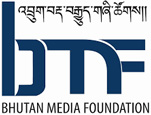Invitation of Expression of Interest
October 16th, 2020

Bhutan Media Foundation is pleased to invite Expression of Interest (EOI) to conduct a Nation-wide Study on the Use of Social Media in Bhutan. Qualified individuals or firms may submit their EOI, along with the financial bid, to Executive Director before 5 pm, 30 October 2020. The EOI and financial bid should be accompanied by the CVs of the proposed consultants containing relevant qualifications and experience.
Objective of the Study
Produce critical data for fact-based interventions:
- All stakeholders and relevant agencies, including the government, have access to social media use data for policy, planning, and educational interventions.
- There are enough data to develop social media literacy training modules relevant to Bhutan’s context.
TOR for the Consultant/Firm
Social media has become a powerful force in Bhutan with the potential to bring immense benefits or do great harm to society. Bhutan’s experience shows that irresponsible use of social media can destroy the country’s unique social fabric. Today, Bhutan is grappling with a number of challenges related to her inability to keep pace with the explosion of social media. However, so far, not a single study has been conducted on the use of social media in Bhutan. Therefore, we lack data for fact-based interventions.
This nation-wide study will generate much-needed data that will prove useful to policy-makers, planners, civil society, and social media users in general. For BMF, the findings of the study will lead to the development of three social media literacy training modules, one each for villagers (illiterate and semi-literate), youth (high school and college students), and working professionals (including executives and Members of Parliament).
The consultant must be guided by the following TOR.
- The study must be nation-wide covering all dzongkhags.
- The study must cover different age groups (children, youth, adults), educational levels, place of residence (rural and urban), occupation (including religious personalities).
- The study must present data disaggregated by age, gender, educational level, place of residence, disability status, and occupation, among others.
- The study must employ different data collection methodologies.
- The study must generate data on different social media platforms: how and why they are used, what devices are used to access them, frequency of use, contents consumed and/or produced.
- The study must generate data on the users’ understanding of social media, the impact of social media, and the government’s social media policy.
- The study must generate data on the users’ technical and ethical competence in the use of social media.
- The study must generate data on the organisational use of social media covering technical and ethical competence, and availability and absence of a social media policy and strategy.
- The consultant/firm must submit a draft report to BMF for review and approval.